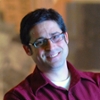Inside of one week, the U.S. Supreme Court ruled that a federal government's ban on same-sex marriage was unconstitutional and threw out a key provision of the 1965 Voting Rights Act. Both historic cases were decided by a 5-to-4 vote.
In 2009, Congress passed the landmark Affordable Care Act. Not a single Republican in the House or Senate voted for the measure. Since then, the Republican-controlled House has voted 46 times to defund or dismantle the act while the Democratic-controlled Senate has, in most cases, refused to vote on House measures.
In late 2013, China unilaterally declared a new air defense zone over the South China Sea and began to shift some portion of its "risky" 3.5 trillion dollar holdings to Euros and other foreign currencies.
Is the United States headed for another decade of dispute and conflict? Or are there ways to navigate these turbulent political waters and resolve our political conflicts?
This season's Reed College Public Policy Lecture Series brings three eminent scholars to Portland to help us understand the current state of American politics and policy.

Lee Epstein: “The U.S. Supreme Court Today . . . and Tomorrow”
January 30, 2014
Thursday
6 p.m.
Vollum lecture hall
Lee Epstein, Provost Professor of Law and Political Science and the Rader Family Trustee Chair in Law at the University of Southern California, discusses the decisions made by members of the Supreme Court in various areas of the law, including affirmative action, federalism, the Second Amendment, and same-sex marriage, and considers the possibilities for change on the Court and in the law in the coming years.
A recipient of 12 grants from the National Science Foundation for her work on law and legal institutions, Epstein has authored or coauthored over 100 articles and essays, as well as 15 books. She is a fellow of the American Academy of Arts and Sciences and the American Academy of Political and Social Science, past president of the Midwest Political Science Association, and a former chair of the Law and Courts Section of the American Political Science Association.
This lecture is cosponsored by Phi Beta Kappa.

Joe Soss: “Racial Injustice and American Democracy in Neoliberal Times”
March 9, 2014
Sunday
5 p.m.
Psychology 105
Joe Soss is the inaugural Cowles Chair for the Study of Public Service at the University of Minnesota, where he holds faculty positions in the Hubert H. Humphrey School of Public Affairs, the Department of Political Science, and the Department of Sociology.
His research and teaching explore the interplay of democratic politics, socioeconomic inequalities, and public policy. He is particularly interested in the political sources and consequences of policies that govern social marginality and shape life conditions for socially marginal groups. Joe Soss is the author of Unwanted Claims: The Politics of Participation in the U.S. Welfare System (2000), co-editor of Race and the Politics of Welfare Reform (2003), co-editor of Remaking America: Democracy and Public Policy in an Age of Inequality (2007), and author or co-author of numerous scholarly articles. His most recent book is Disciplining the Poor: Neoliberal Paternalism and the Persistent Power of Race (University of Chicago Press, 2011), co-authored with Richard C. Fording and Sanford F. Schram. In 2010, he received the campus-wide Outstanding Faculty Award from the University of Minnesota's Council of Graduate Students (COGS).
This lecture is sponsored by the Elizabeth C. Ducey Political Science Lecture Fund

Norman Ornstein: “The Sorry State of American Politics”
March 24, 2014
Monday
7 p.m.
Vollum lecture hall
Norman Ornstein, political scientist and resident scholar at the American Enterprise Institute, a Washington D.C. think tank, addresses the current state of American politics.
Ornstein is a contributing editor and columnist for National Journal. His weekly columns also appear in TheAtlantic.com. For 30 years he was an election-eve analyst for CBS News, then became the on-air analyst for BBC News in 2012. For two decades, prior to joining National Journal, he wrote a weekly column for Roll Call, "Congress Inside Out." He has written for the New York Times, the Washington Post, the Wall Street Journal, Foreign Affairs, and other major publications, and regularly appears on television programs such as the NewsHour with Jim Lehrer, Nightline, and Charlie Rose.
This lecture is sponsored by the Elizabeth C. Ducey Political Science Lecture Fund
Listen to Norm Ornstein's lecture:
John J. Mearsheimer: “Can China Rise Peacefully?”
April 16, 2014
Wednesday
7 p.m.
Vollum lecture hall
John J. Mearsheimer, R. Wendell Harrison Distinguished Service Professor of Political Science and codirector of the Program on International Security Policy at the University of Chicago, examines the rise of China, its impact on world politics in the 21st century, and how a powerful China could lead to a potential clash with the U.S. and with China’s neighbors—Japan, India, and Vietnam.
Mearsheimer has written extensively about security issues and international politics, publishing in both academic and popular journals and authoring five books; most recently, Why Leaders Lie: The Truth about Lying in International Politics. His op-ed pieces for the New York Times and the Los Angeles Times have addressed Bosnia, nuclear proliferation, American policy towards India, the failure of Arab-Israeli peace efforts, and the folly of invading Iraq.
Panel Discussion on the Crisis in Ukraine with John Mearsheimer
April 16, 2014
Wednesday
1:30-3:00pm
Vollum Lounge
More information can be found here.
Lecture and Panel Discussion are sponsored by the Munk-Darling Lecture Fund in International Relations.